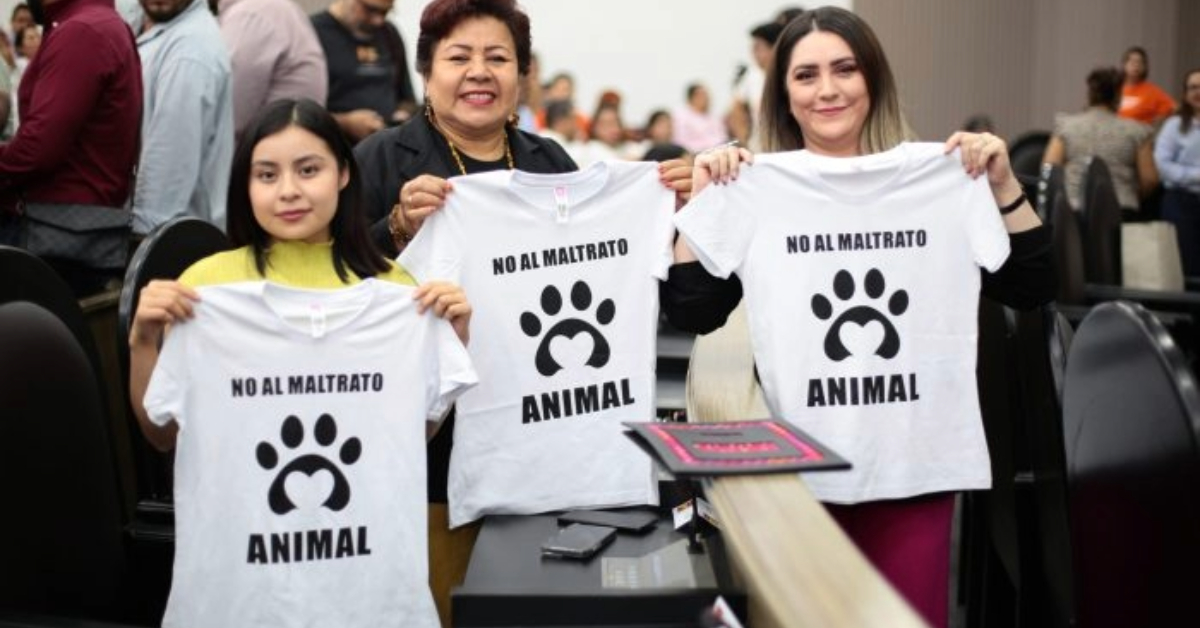Chiapas has passed a historic reform making animal abuse a criminal offense, ending its status as the only Mexican state without legal penalties for cruelty toward pets.
After years of public pressure and criticism, Chiapas has finally passed a reform to its Penal Code that criminalizes animal abuse—making it the last state in Mexico to do so.
On Wednesday, the Chiapas State Congress unanimously approved a legislative package that toughens penalties for acts of cruelty against companion animals, particularly dogs and cats. This marks a historic shift in the state’s legal landscape, as it had remained the only jurisdiction in the country where animal abuse was not considered a criminal offense.
The new law introduces specific penalties based on the severity of the abuse. Cases that result in the death of a pet will now carry prison sentences of up to five years and fines of up to 600 days of Mexico’s Unit of Measurement and Update (UMA), totaling more than 68,000 pesos under current values.
“This reform addresses a long-standing demand from civil society and aligns Chiapas with the rest of the country in providing basic legal protections to animals,” stated the local Congress in its announcement. The new legal framework includes an entirely new title and chapter in the Chiapas Penal Code, exclusively dedicated to offenses involving cruelty and mistreatment of companion animals.
Gradated Penalties Based on Harm
The law distinguishes between different levels of harm:
- Non-lethal abuse or cruelty: Offenders can be sentenced to six to twelve months in prison and fined between 50 and 100 UMAs (5,657 to 11,314 pesos).
- Permanent physical injury to an animal: The punishment increases to 12 to 24 months in prison, with fines of 200 to 400 UMAs (over 22,000 to 45,000 pesos).
- Death of an animal: Penalties rise to two to five years of imprisonment and fines ranging from 300 to 600 UMAs (more than 33,000 to 68,000 pesos). In cases where the offender is a veterinary professional or animal care worker, the law adds an occupational ban of up to three years.
Crackdown on Dogfighting and Pet Abandonment
Beyond individual acts of abuse, the legislation also targets systemic cruelty, including organized dogfighting and abandonment:
- Dogfighting: Anyone who organizes, finances, promotes, or participates in dogfights—whether in public or private—can be sentenced to two to four years in prison, along with fines ranging from 500 to 1,000 UMAs. The law allows for the seizure of related property, the closure of the event venue, and the cancellation of business licenses.
- Pet abandonment: If abandonment endangers the animal’s life, the penalty is 18 months to three years in prison and fines from 100 to 200 UMAs.
Public and Political Support
The legislative reform was supported by representatives from multiple parties, including Andrea Negrón Sánchez, Silvia Esther Argüello García, Elvira Catalina Aguiar Álvarez, Ana Karen Ruiz Coutiño, Valeria Santiago Barrientos, Marcela Castillo Atristain, and Juan Salvador Camacho Velasco. These lawmakers emphasized that the new legal protections reflect not only ethical and moral progress but also the will of the people.
“The well-being of animals is directly linked to the emotional health and values of our communities,” said Representative Negrón Sánchez during the session. “Dogs and cats are not just property; they are sentient beings that occupy a central place in the lives of Chiapas families.”
The reform is also based on research from the animal advocacy group Igualdad Animal (Animal Equality), which has campaigned across Mexico for stronger protections for animals. Their studies helped lay the groundwork for the legal text adopted in Chiapas.
A Long-Awaited Victory
Animal rights activists have long decried Chiapas’s lack of legal consequences for abuse, especially in a country where awareness and support for animal welfare has grown steadily over the past decade. With this reform, all 32 states in Mexico now recognize animal cruelty as a criminal offense.
Though late to join the rest of the country, the Chiapas legislature says this law is more than a symbolic gesture—it is a legal commitment to building a more compassionate and just society.
And for the many who fought for years to see this day arrive, it’s a victory that was well worth the wait.
Chiapas has passed a historic reform making animal abuse a criminal offense, ending its status as the only Mexican state without legal . . .











